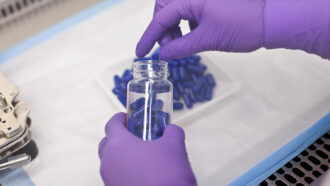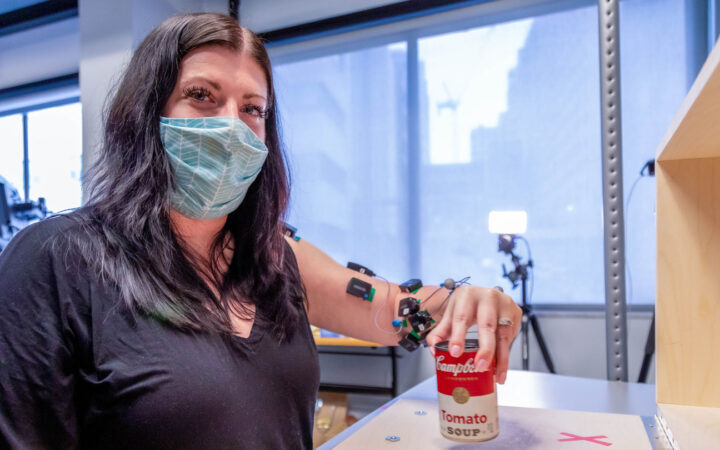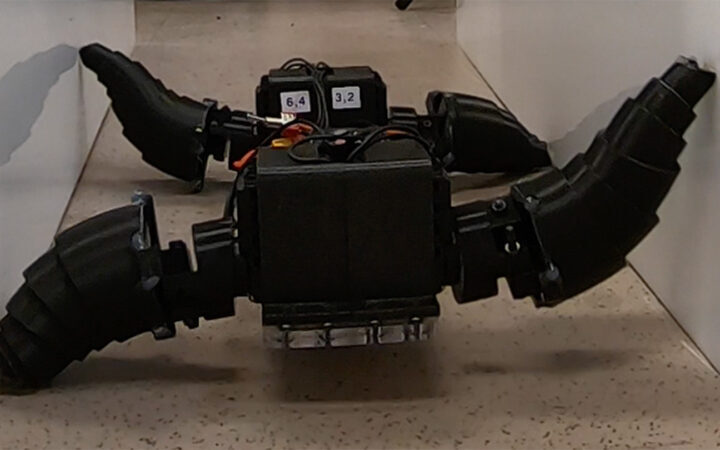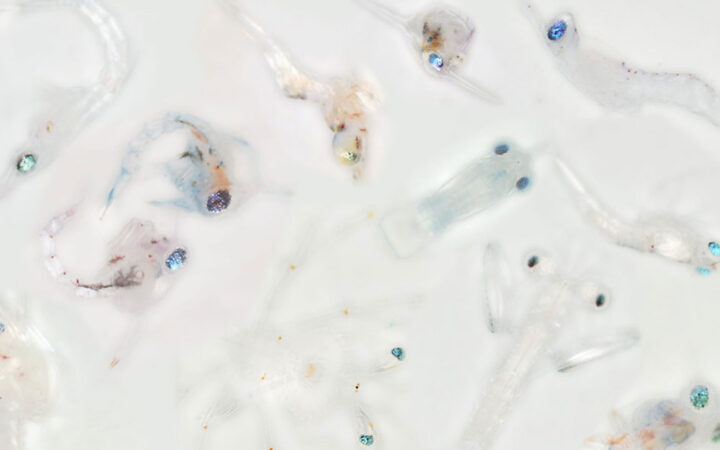
PHOENIX — Pills loaded with bacteria from other people’s poop might help adults who are highly allergic to peanuts safely eat the nuts in small amounts.
In a small clinical trial, a one-day treatment of the pills helped some people with the allergy consume one or more peanuts. The results, presented February 26 at the American Academy of Allergy, Asthma & Immunology annual meeting in Phoenix, are a first step toward seeing whether the approach, called fecal microbiota transplant, could extend to people allergic to foods other than peanuts. In the United States alone, about 32 million people have food allergies.
The trial evolved out of past research suggesting that gut microbes help shape the immune system to protect against food allergies. In a 2019 study, Rima Rachid, an allergist-immunologist at Boston Children’s Hospital, and her colleagues found that certain bacteria were enriched in the stool of babies without food allergies compared with babies who had food allergies. When transferred into allergy-prone mice, these bacteria — the single species Subdoligranulum variabile and a set of Clostridia species — prevented allergic responses. The treatment, a type of bacteriotherapy, activated a subset of immune cells called regulatory T cells, which protect the mice from having allergic reactions.
In people, fecal transplants — which take feces from healthy people and transplant it into ill individuals, usually by colonoscopy — have become a standard treatment for recurrent Clostridium difficile infections (SN: 5/18/18; SN: 2/25/22). But it wasn’t until research showed that fecal material could achieve comparable success when delivered as oral capsules that Rachid’s team started thinking about doing a trial in people with peanut allergies.
The team partnered with OpenBiome, a nonprofit stool bank, to collect stool samples from healthy donors without allergic diseases and encapsulate the fecal matter into odorless, tasteless pills. The donors had avoided peanuts and tree nuts for a week, and their stool was analyzed by liquid chromatography and mass spectrometry to ensure it contained no traces of nut proteins, Rachid said.
The study enrolled 15 adults with severe peanut allergies. At the start of the trial, each had an allergic reaction to 100 milligrams of peanut protein (less than half a peanut). The first 10 participants took 36 “poop pills” over a three-hour period. After one month, 30 percent (3 of 10 participants) could safely consume a 100-milligram dose of peanuts, and by four months, two of these individuals had increased their tolerance to at least 300 milligrams (about one peanut), enough to guard against most accidental exposures.
Fecal matter transferred to pills (shown) shows promise for treating allergies.Erik Jacobs/OpenBiome
The remaining five participants had the same poop pill regimen, except that beforehand they took a four-day course of antibiotics with the aim of killing some of the bacteria naturally found in the body in order to clear space in the gut for the transferred microbes.
That strategy seemed to work better. Sixty percent (3 of 5 participants) raised their peanut threshold beyond 300 milligrams by month four. (The COVID-19 pandemic lockdown prevented data collection from several participants at the one-month timepoint.)
Throughout the study, no one suffered serious adverse events or had allergic reactions related to the fecal transplant, Rachid reported.
And in an analysis of participants’ blood samples, the researchers found increased levels of regulatory T cells only in the six people whose peanut threshold rose with bacteriotherapy — confirming what was previously observed in mice.
The results are exciting, says immunologist Cecilia Berin, deputy director of the Jaffe Food Allergy Institute at the Icahn School of Medicine at Mount Sinai in New York City. The fact that fecal transplant pills helped a subset of individuals without needing exposure to a specific allergen suggests the approach could potentially be useful for patients with multiple food allergies, she says.
Rachid says her team plans to launch a larger trial this summer with a version of the stool-based treatment called microbial transfer therapy, or MTT. These capsules will contain higher concentrations of bacteria and less fecal material and can be taken at home, rather than in the clinical setting used for the study. A future trial will test a product that ditches the poop altogether and uses just the protective bacterial strains.

 A new treatment could restore some mobility in people paralyzed by strokes
A new treatment could restore some mobility in people paralyzed by strokes  What has Perseverance found in two years on Mars?
What has Perseverance found in two years on Mars?  This robot automatically tucks its limbs to squeeze through spaces
This robot automatically tucks its limbs to squeeze through spaces  Greta Thunberg’s new book urges the world to take climate action now
Greta Thunberg’s new book urges the world to take climate action now  Glassy eyes may help young crustaceans hide from predators in plain sight
Glassy eyes may help young crustaceans hide from predators in plain sight  A chemical imbalance doesn’t explain depression. So what does?
A chemical imbalance doesn’t explain depression. So what does?